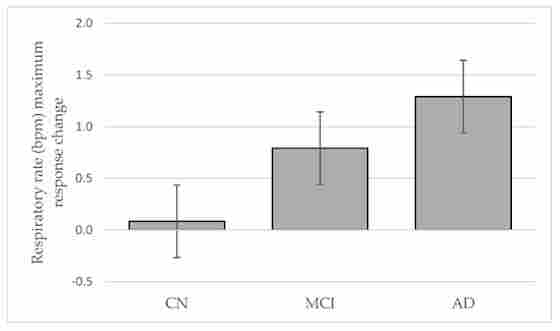Overview
This pilot study investigated if respiration rate (RR) during stable sleep shows a relationship to pathological severity in subjects with mile cognitive impairment (MCI) and Alzheimer's disease (AD) who snore, and if RR is influenced following stabilization of the upper airway using oral appliance therapy (OAT). The study cohort included a combination of cognitively normal participants and people diagnosed with MCI or AD. A sub-population within this group received intervention consisting of an oral appliance plus a mouth shield. Researchers measured breaths per minute and RR fluctuation during 2116 stable sleep periods, and administered the Montreal Cognitive Assessment (MoCA) before the study and after 4 weeks of intervention. Collected data suggests some MCI and AD subjects improved executive and memory function after 4 weeks of intervention.
Respiratory rate maximum response change after 4 weeks of oral appliance therapy, based upon documentation of study groups: cognitively normal (CN), mild cognitive impairment (MCI) and Alzheimer’s disease (AD).




